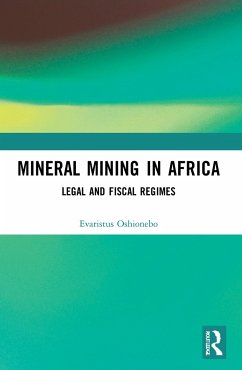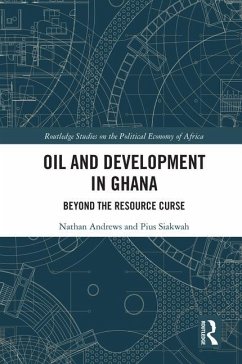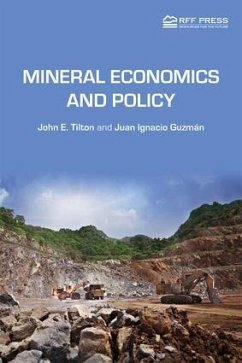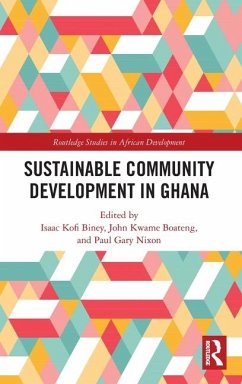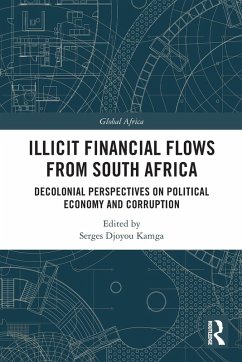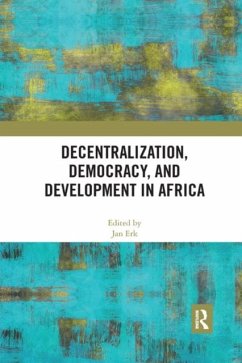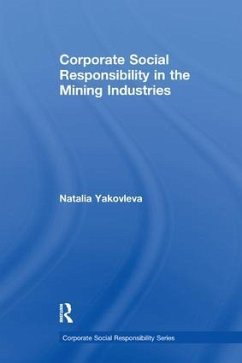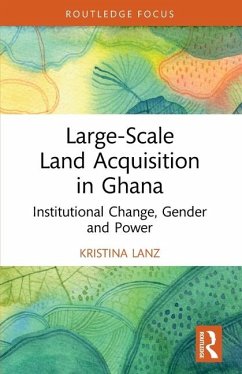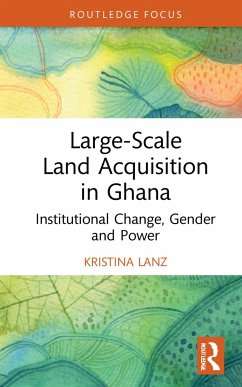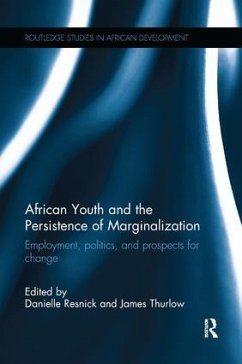
Mineral Resource Governance and Human Development in Ghana
Versandkostenfrei!
Versandfertig in 6-10 Tagen
22,99 €
inkl. MwSt.
Weitere Ausgaben:

PAYBACK Punkte
11 °P sammeln!
This book investigates how mineral resources can be governed to promote people-centred development in Ghana, focusing on the three main human development variables: living standards, education and health.Ghana is endowed with abundant mineral resources. The mineral sector accounts for about 14% of total tax revenue, driven mostly by an increase in export earnings from the gold sector and the commencement of crude oil exports. However, the country has not yet been able to use its natural resources to promote human development, and the majority of the population still lives on less than $2 a day...
This book investigates how mineral resources can be governed to promote people-centred development in Ghana, focusing on the three main human development variables: living standards, education and health.
Ghana is endowed with abundant mineral resources. The mineral sector accounts for about 14% of total tax revenue, driven mostly by an increase in export earnings from the gold sector and the commencement of crude oil exports. However, the country has not yet been able to use its natural resources to promote human development, and the majority of the population still lives on less than $2 a day. This book argues for a paradigm shift in the discussion of mineral resources, one that looks to govern natural resources in such a way as to improve standards of living, health, education, income levels, empowerment, quality of work and threats from violence. The human-centred mineral resource governance approach developed by this book will not only be useful to Ghana, but can also be applied to other mineral-rich countries in sub-Saharan Africa.
This book will be important to upper-level students and researchers of natural resource management, international development and African studies, as well as to NGOs, practitioners and policymakers who recognise the importance of linking natural resources income to human development.
Ghana is endowed with abundant mineral resources. The mineral sector accounts for about 14% of total tax revenue, driven mostly by an increase in export earnings from the gold sector and the commencement of crude oil exports. However, the country has not yet been able to use its natural resources to promote human development, and the majority of the population still lives on less than $2 a day. This book argues for a paradigm shift in the discussion of mineral resources, one that looks to govern natural resources in such a way as to improve standards of living, health, education, income levels, empowerment, quality of work and threats from violence. The human-centred mineral resource governance approach developed by this book will not only be useful to Ghana, but can also be applied to other mineral-rich countries in sub-Saharan Africa.
This book will be important to upper-level students and researchers of natural resource management, international development and African studies, as well as to NGOs, practitioners and policymakers who recognise the importance of linking natural resources income to human development.





